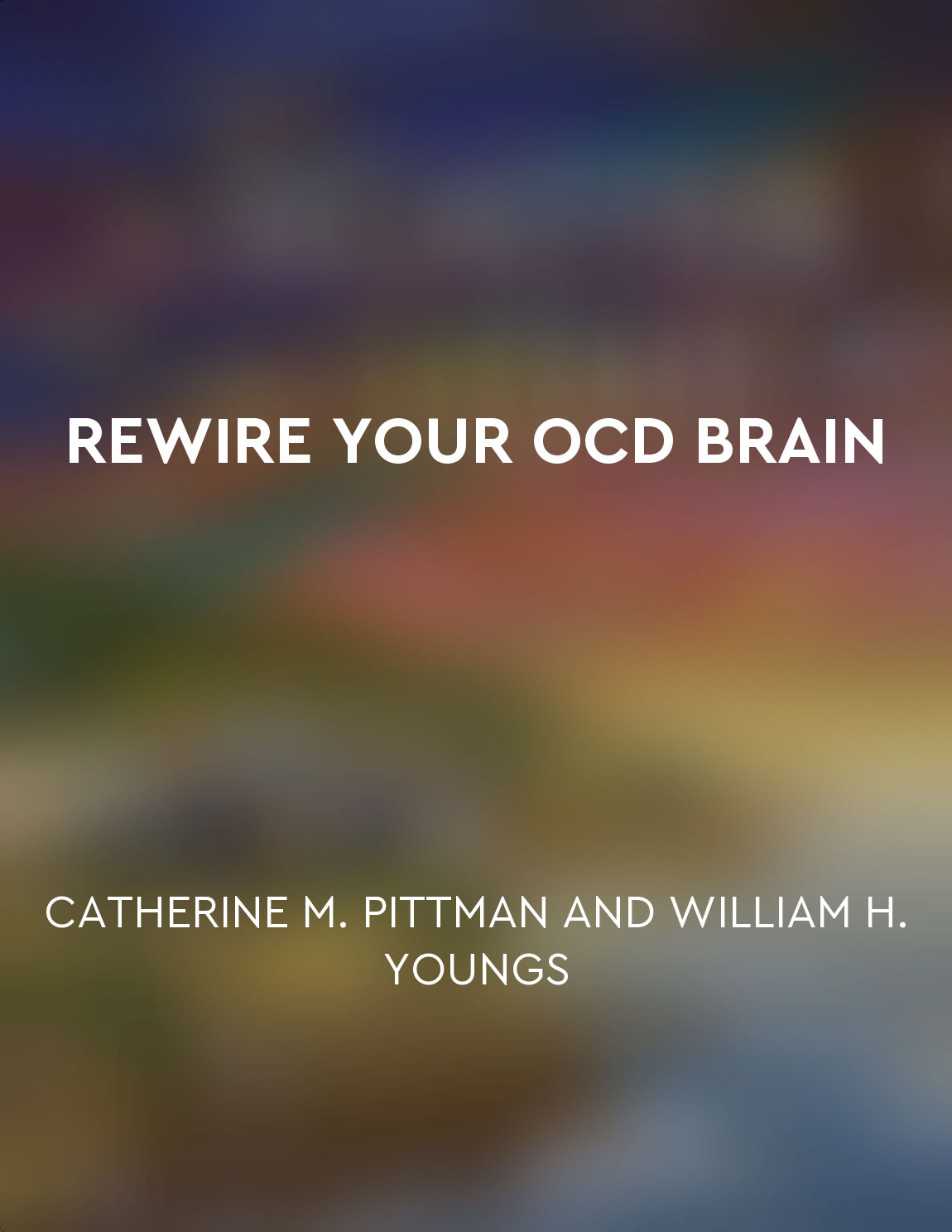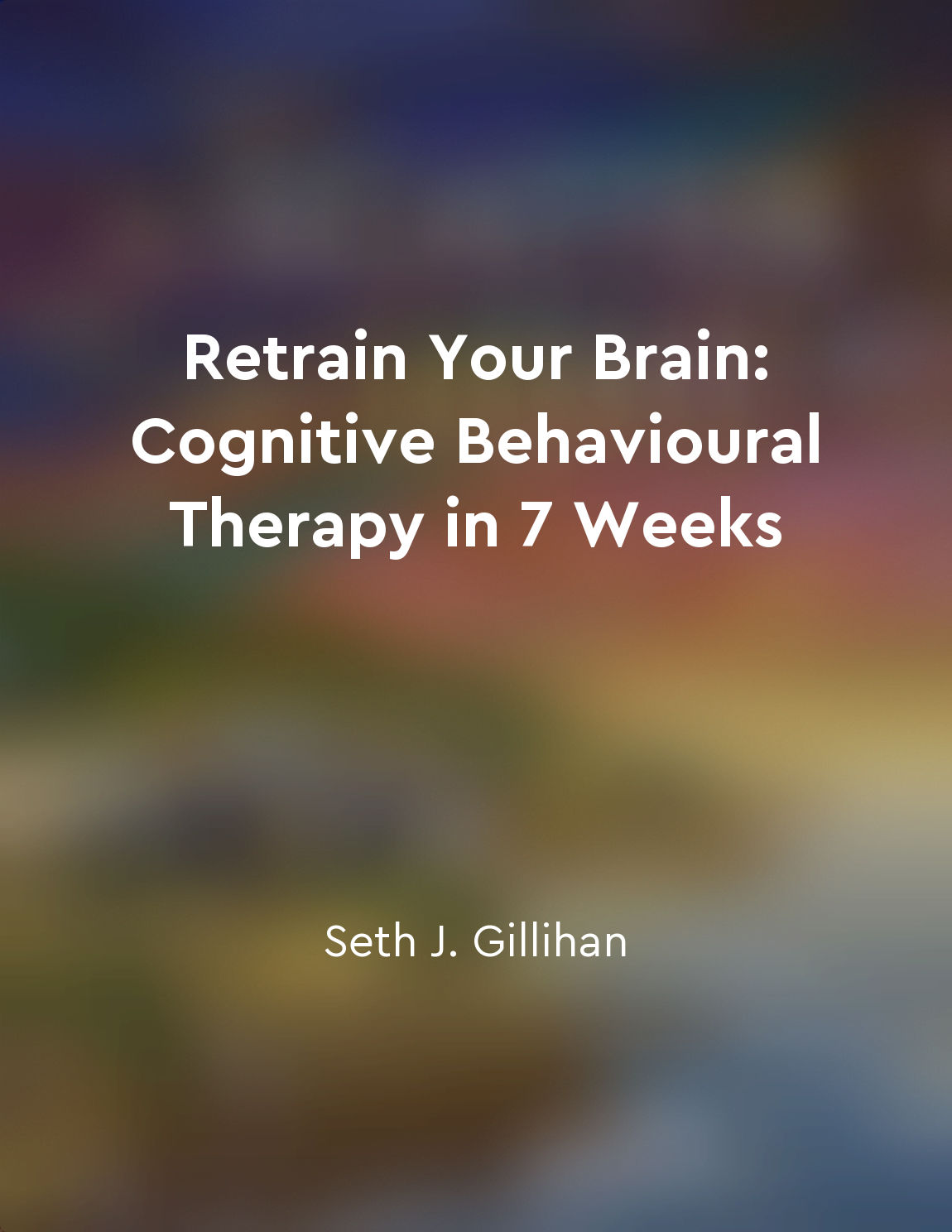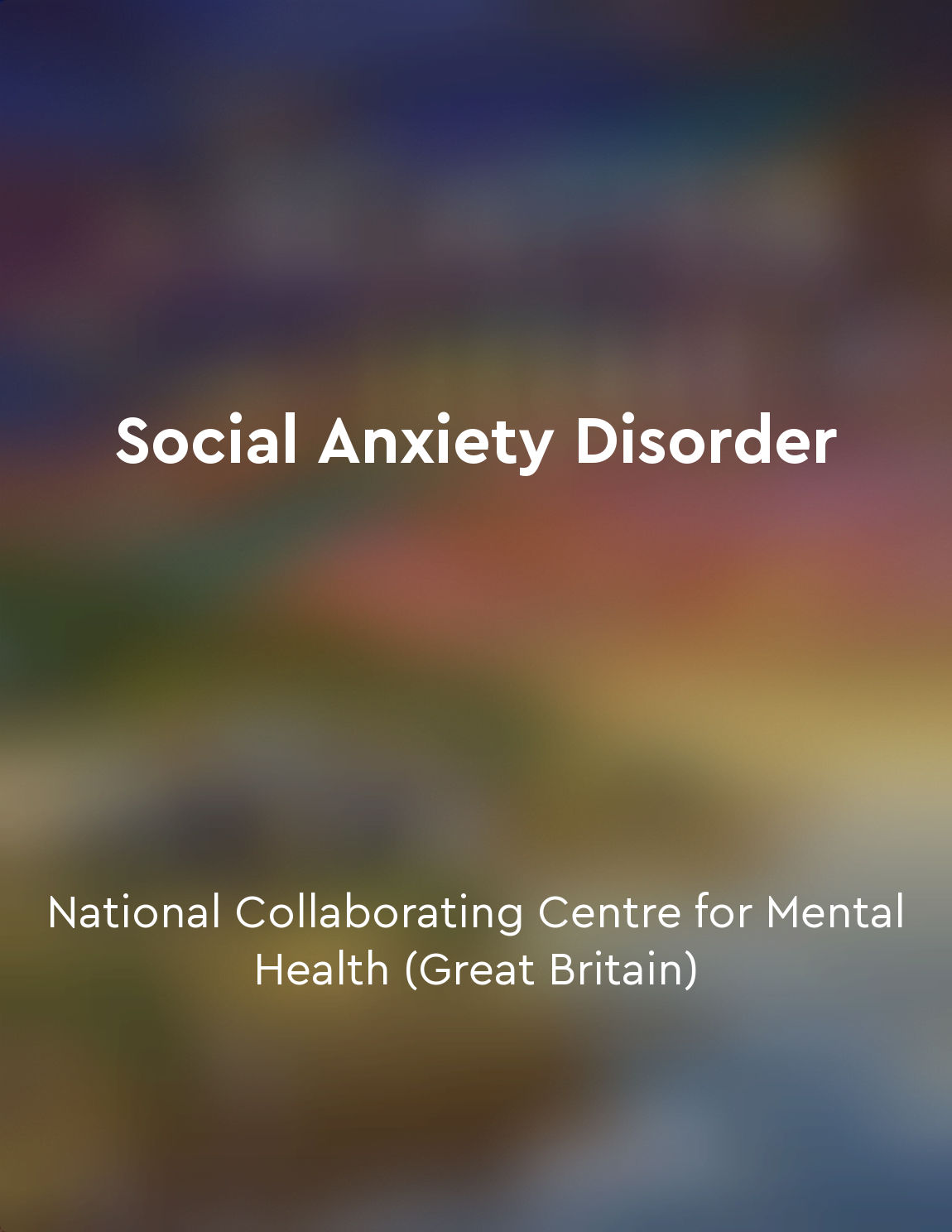Building a support system from "summary" of The Mindfulness Workbook for OCD by Jon Hershfield,Tom Corboy
One of the key strategies for managing OCD is to create a network of people who can offer support and understanding. This support system can consist of family members, friends, therapists, and support groups. These individuals can provide encouragement, guidance, and a listening ear when you are struggling with OCD symptoms. It is important to reach out to these individuals and let them know how they can help you. By building a support system, you can feel less isolated in your struggles and gain valuable insights from those who care about you. When selecting individuals to include in your support system, it is important to choose people who are understanding and empathetic towards your struggles with OCD. These individuals should be non-judgmental and willing to listen without offering unsolicited advice. It is also helpful to include individuals who have experience with mental health issues or who have a solid understanding of OCD. These individuals can offer valuable insights and support based on their own experiences. In addition to seeking support from friends and family, it can be beneficial to join a support group specifically for individuals with OCD. These groups provide a safe and supportive environment where you can share your experiences, receive feedback, and learn coping strategies from others who are facing similar challenges. Support groups can also help you feel less alone in your struggles with OCD and provide a sense of community and understanding. Therapy can also be a valuable component of your support system. A therapist who specializes in OCD can provide you with tools and techniques to manage your symptoms, as well as offer a safe space to explore the underlying causes of your OCD. Therapy can help you develop a deeper understanding of your condition and provide you with the skills to cope with triggers and urges in a healthy way.- Building a support system is a crucial aspect of managing OCD. By surrounding yourself with understanding and empathetic individuals, you can feel less isolated in your struggles and gain valuable insights and support. Whether it is through friends, family, support groups, or therapy, reaching out for help can make a significant difference in your journey towards managing OCD.
Similar Posts
Finding strength and resilience in the face of mental health challenges
Patty Duke's 'Brilliant Madness' delves into the tumultuous journey of navigating mental health challenges. Through her own exp...
Cultivating present moment awareness
Cultivating present moment awareness involves deliberately directing your attention to the here and now. It means being fully p...
Reinforcing positive behaviors can lead to lasting change
Positive reinforcement is a fundamental concept in cognitive-behavioral therapy, as it has the power to bring about lasting cha...

Understand OCD as a brainbased disorder
Understanding OCD as a brain-based disorder is crucial in order to effectively manage and rewire the brain circuits that contri...

Learn to identify automatic thoughts
Automatic thoughts are the quick, fleeting, and often unconscious cognitions that pop into our minds throughout the day. These ...

It is important to set realistic goals for social situations
When navigating social situations, individuals with social anxiety disorder may find it helpful to establish realistic goals. S...

Create a toolbox of strategies for managing OCD symptoms
One of the key components to effectively managing OCD symptoms is to have a variety of strategies at your disposal. Think of th...

Learn to differentiate between thoughts and actions
One key concept to keep in mind is the ability to distinguish between thoughts and actions. When dealing with OCD, it is crucia...

